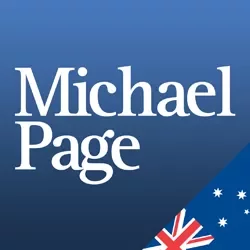Build your dream team
We'll quickly match you with skilled and experienced candidates.


Like disruptive global events before it, the last few years has left many organisations grappling with financial uncertainty and frozen headcounts. On the flipside, the pandemic forced companies to completely rethink and adapt business models, which requires significant investment and flexibility.
During this time of ongoing uncertainty, contracting solutions in Australia can be an attractive prospect. They offer the opportunity to quickly hire someone with specialist skills to fill a short-term need, without the long-term overheads of bringing a permanent employee on board. Hiring independent contractors is often more cost effective than traditional employment.
Contract work, or the ‘gig economy’ as it’s commonly known, has been on the rise in recent years. According to a report by the Australian Bureau of Statistics, there are over a million independent contractors across the nation, making up just under 10% of the employed population. Our Talent Trends report also found that employer demand is stronger for flexible work arrangements and contract workers — a trend that is likely to continue growing, as a shift that’s here to stay.
Fill a temporary role fast! Our recruitment team will match you with skilled contractors. Contact us to get started with employing a contractor.
Here are the major benefits that organisations experience from employing contract workers, both during and after times of global disruption.
Contractors can offer a quick solution to any skills shortages within an organisation, particularly when there are specialist skills involved.
Due to the nature of their work, experienced contractors are often available to start at short notice, which is particularly important given the rapid pace of change in the business world, as a result of the pandemic. Contract workers may also be able to onboard and deliver work faster than a permanent employee, who would need to give notice to their existing employer.
Whether it’s due to employee turnover, parental leave or a family emergency, every company needs to deal with unforeseen issues that arise within their team. These often leave companies struggling to meet deadlines and put additional pressure on existing employees who need to compensate for these shortages and subsequent changes in your organisation.
Did you know 52% of employers cite talent shortages as the main reason to employ temporary staff? In unexpected circumstances, freelancers and contractors can serve as a quick fix while you find a long term solution. If a member of staff has departed suddenly, or you simply haven’t had enough time to find a replacement, hiring a temp can make this transition easier, and there’ll be no loss of productivity.
Hiring contract workers offers the advantage of bringing in the right knowledge and skills for jobs requiring specialist expertise, enabling companies to efficiently tackle complex projects and achieve exceptional results above and beyond core business.
By having a pool of potential workers, whether they are freelance or an independent contractor, you can quickly call on the right people to lend a helping hand on any outstanding projects, without needing to worry about the recruitment and onboarding process.
In normal times, it’s not uncommon for the need for headcount to shift rapidly in conjunction with the changing needs of a business. During and post-COVID-19, however, this point has become more crucial for business survival. As organisations adapt to new business models and readjust their processes, the need for agility and flexibility is essential.
In a volatile market with a high degree of uncertainty, short-term contractors provide the ideal opportunity to assess market shifts and organisational needs on an ongoing basis, rather than committing to new employees permanently. Contract workers support lean business planning, which allows businesses to respond with greater speed and flexibility to the ever-changing nature of the pandemic.
Hiring a new staff member requires significant upfront investment and can be time-consuming. Initially hiring potential full-time, part-time or casual workers on a contract basis allows a business to assess how that individual will fit within their company environment and culture. During the contract period, managers can determine whether a candidate is a good fit for the job.
As companies rapidly change and adapt during COVID-19, contractors also provide a testing phase for organisational headcount needs. It provides management with an insight into which roles will be crucial as the business moves forward, and which will become redundant.
Temporary staff are often brought on board to complete certain tasks or projects. Because of this, they’re not tied down to the everyday tasks that come with a permanent role – managing an overflowing inbox and receiving ad-hoc requests, for example – and can therefore focus solely on getting the job done.
You can also choose a temporary employee or contractor who matches the exact skill set you need for a task, which is particularly beneficial if you have a skills gap within your current team.
If an organisation needs to pivot or suddenly experiences a dramatic change, temporary workers don’t require the same notice period as permanent employees. Shorter notice periods mean headcount can be adjusted to suit the changing business needs swiftly, which will be paramount during and beyond the pandemic.
Hiring contractors can protect a company’s bottom line when budgets and profit are crucial. With temporary staff, you have the option of whether to exclude annual leave or sick leave — plus, temporary employees are generally responsible for their own super contributions and insurance. In the end, this frees up payroll expenses so you can invest more in employee benefits for your existing employees, though many businesses choose to provide certain benefits to their contractors as part of their employee value proposition.
Most contractors and freelancers also set their own rates using a contractor pay calculator. This transparent approach takes the guesswork out of salary negotiations: if their rate aligns with your budget, you’re ready to go.
Businesses can build trust and loyalty in contract employees by learning about and assisting in their long-term goals. If they are looking only for contract work, they can be useful for short-term projects or high capacity periods. If they are looking for long-term opportunities, they can be a potential temp-to-perm hire, so always consider it as an option – a strong contractor might be highly motivated by the potential of a permanent job, or their circumstances may have changed so the stability of permanent work has now become their end-goal.
As employers continue to face fast-changing needs in business, contractors and temp workers will continue to help them adapt to the market’s demands. Designing robust attraction, onboarding and engagement strategies will assist in helping smooth the transition to a more flexible, contingent workforce.
Consider the following when designing an onboarding program that will suit contract workers:
These are questions that will inevitably come up with a temp or contract worker, so having the answers in one place before you start bringing on the new talent is a wise move.
Ready to hire? We specialise in a variety of sectors and are ready to discuss your vacancy. Contact us and we’ll find the right consultant for your location and role.
If you are an employer and would like to discuss your hiring needs, fill in the form below and we will call you back.
We'll quickly match you with skilled and experienced candidates.
Discover your value with salary benchmarks across various industries.
Build your hiring advantage with clear answers to five key questions top talent is asking right now.
